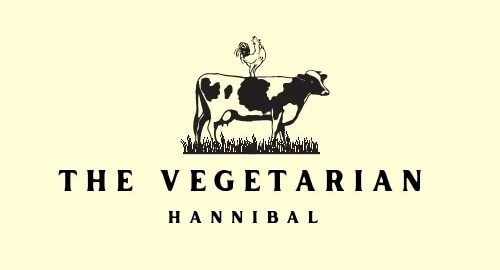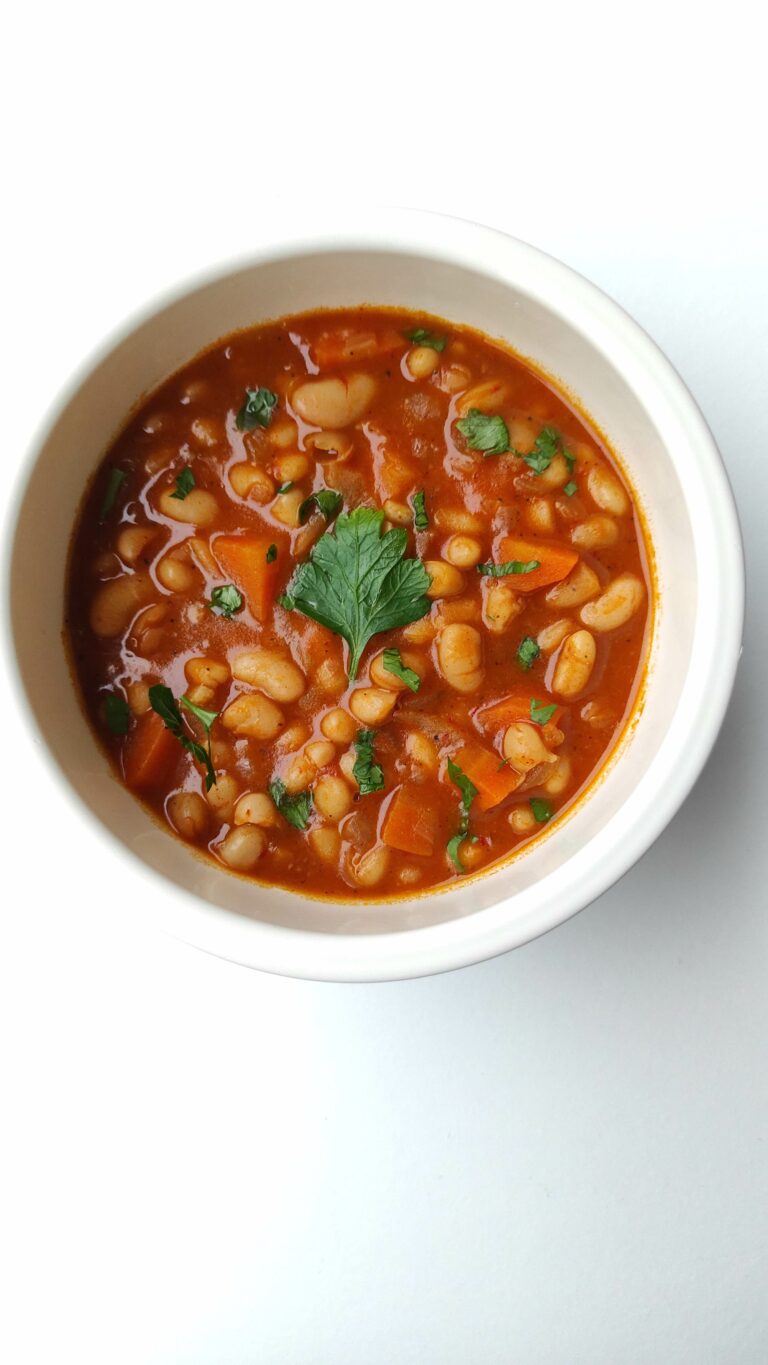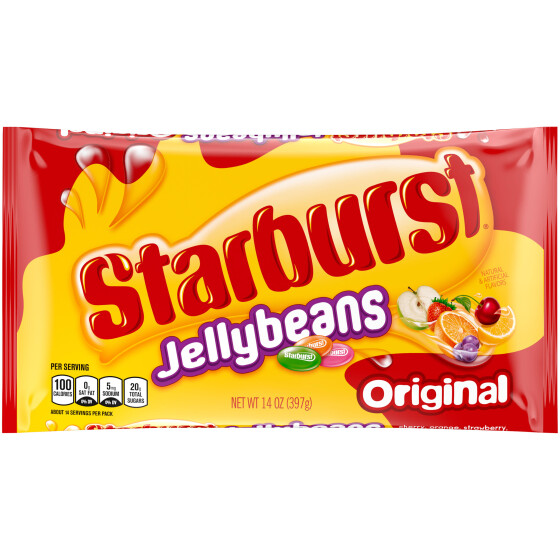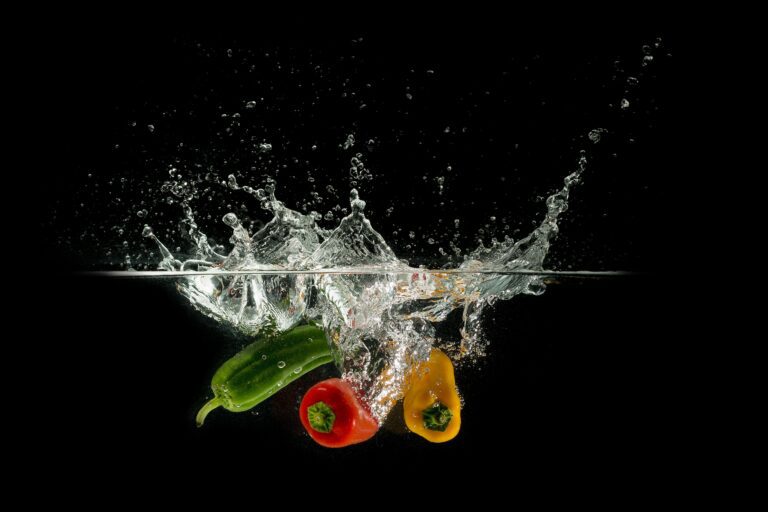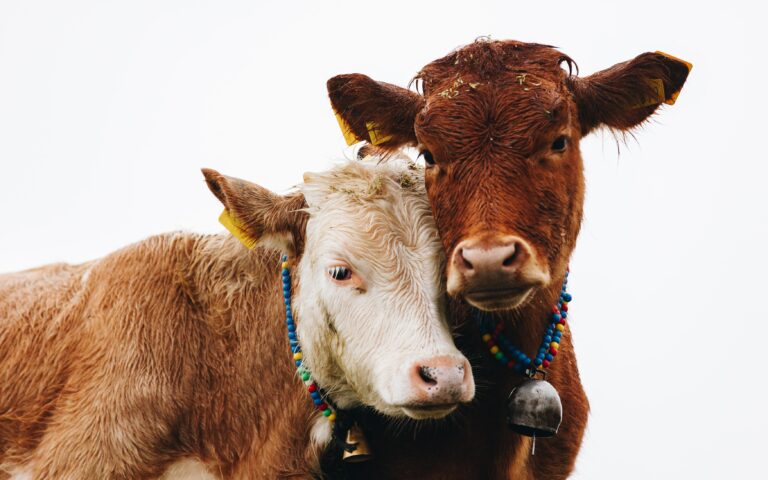Top 10 Vegan Protein Sources for Building Muscle
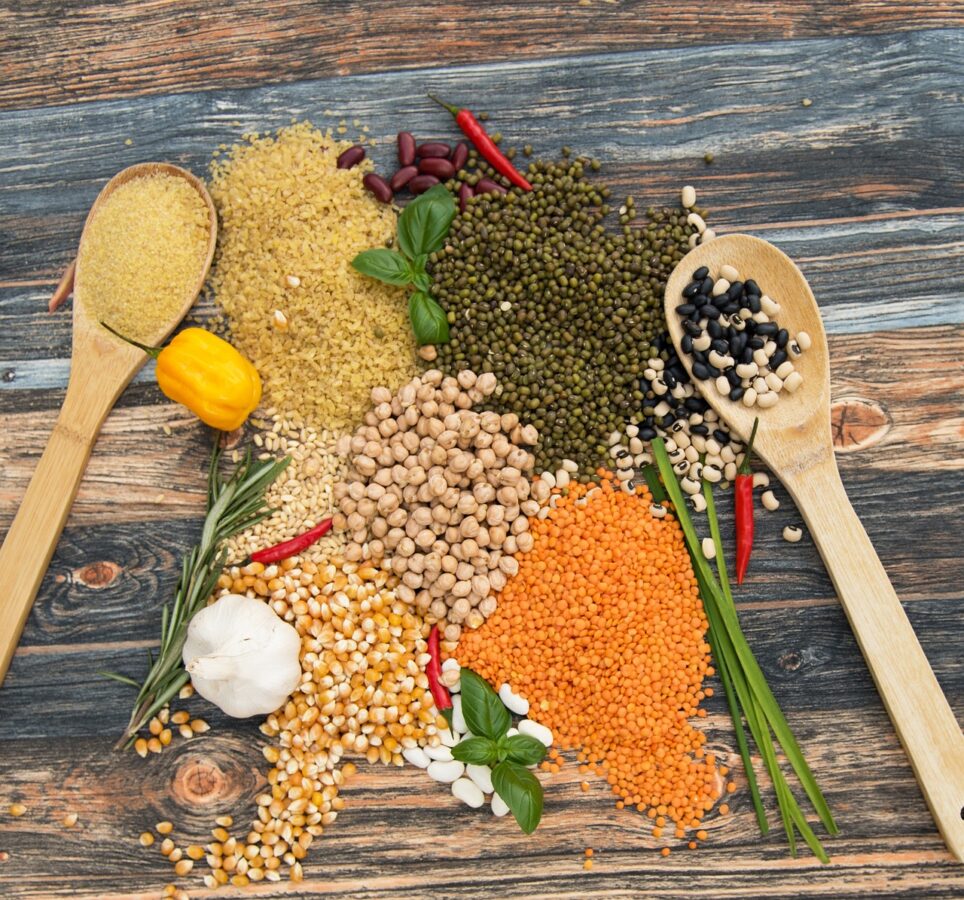
This post could highlight the best vegan protein sources for individuals who want to build muscle, including legumes, quinoa, tempeh, and tofu.
Contents
Are proteins good for you?
Yes, proteins are an essential nutrient that are necessary for many functions in the body.
Proteins are made up of amino acids, which are the building blocks of muscles, bones, skin, and other tissues in the body. They also play a critical role in various metabolic processes, including the production of enzymes and hormones.
Along with carbohydrates and fats , proteins belong to the group of so-called macronutrients. These are nutrients that are needed in large quantities as a source of energy for life. Proteins should make up about 10 to 35 percent of the daily calorie intake. A requirement that can be easily met with the help of animal foods such as meat, fish, milk, eggs, yogurt or cheese.
If you want to completely avoid animal products as a vegan, you must therefore carefully compile your diet in order to avoid a protein deficiency in the long term.
Top 10 vegan protein sources for building muscle
1. Legumes:
Legumes such as lentils, chickpeas, and black beans are rich in protein and are a great source of fiber and complex carbohydrates. They also contain important minerals such as iron, zinc, and magnesium, which are essential for muscle growth and repair.
Here are some unbelivabley delicious vegan and vegetarian legume recipes:
- Flourless and gluten-free lentil bread recipe
- Rainbow Plants Life`s vegan lentil curry
- Vegan lentil stew recipe
- Vegan lentil meatballs recipe
- Alison Roman`s spiced chickpea stew
- Vegan chickpea curry
- Mediterranean chickpea salad recipe
- Vegan chickpea meatballs
- Spicy chickpea wrap
- Chickpea curry with coconut milk and potato
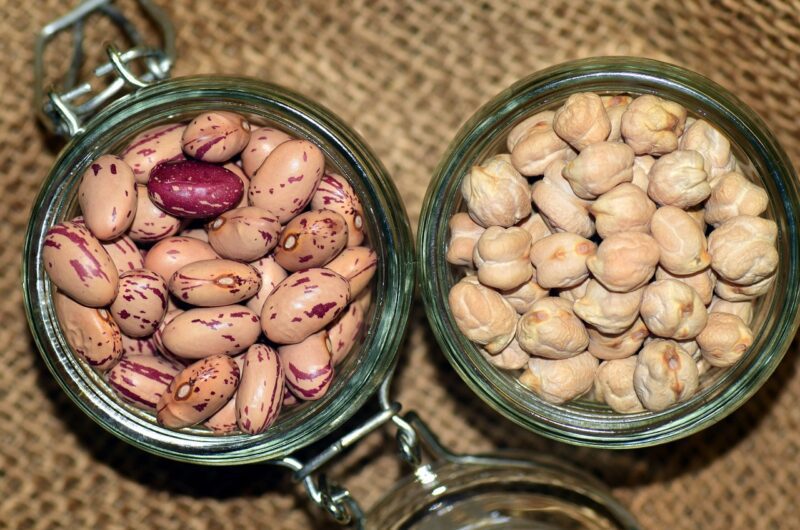
2. Quinoa:
Quinoa is a complete protein, meaning it contains all nine essential amino acids that the body cannot produce on its own. It’s also high in fiber, magnesium, and iron, making it an excellent choice for muscle building.
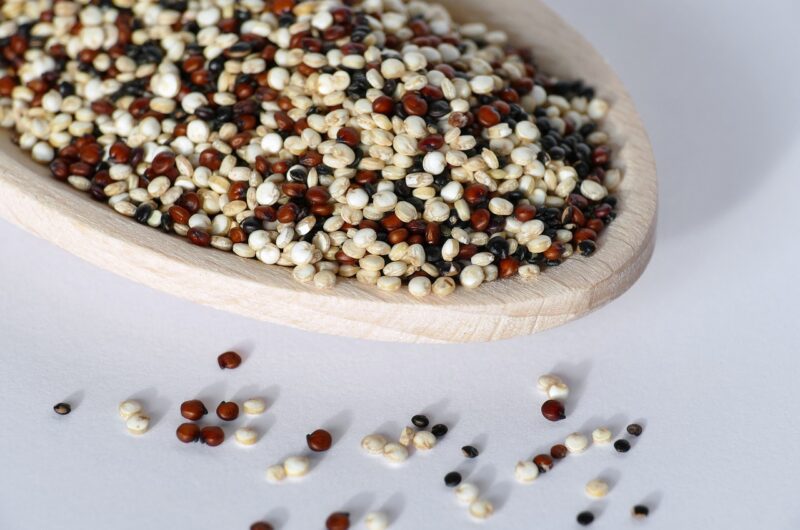
Is Quinoa good for you?
Yes, quinoa is a highly nutritious food that is considered to be very good for you. Quinoa is a seed that is often referred to as a “superfood” because of its high nutrient content. Here are some of the key health benefits of quinoa:
- High in Protein: Quinoa is a complete protein, meaning it contains all nine essential amino acids that the body cannot produce on its own. This makes it an excellent protein source for vegetarians and vegans.
- Rich in Fiber: Quinoa is also high in fiber, which is important for digestive health and can help to reduce the risk of chronic diseases such as heart disease and diabetes.
- Contains Important Vitamins and Minerals: Quinoa is rich in several important vitamins and minerals, including iron, magnesium, and potassium. These nutrients are important for various bodily functions, including muscle function, nerve function, and blood pressure regulation.
- Gluten-Free: Quinoa is naturally gluten-free, making it a good option for people with celiac disease or gluten sensitivity.
- Versatile: Quinoa is a versatile food that can be used in a variety of dishes, including salads, soups, and stir-fries. It has a mild, nutty flavor and a slightly chewy texture.
3. Tofu:
Tofu is one of the top 10 vegan protein sources for building muscle. It is a soy-based product that is high in protein and low in fat. It’s also a good source of iron, calcium, and magnesium, which are important for muscle function and growth.
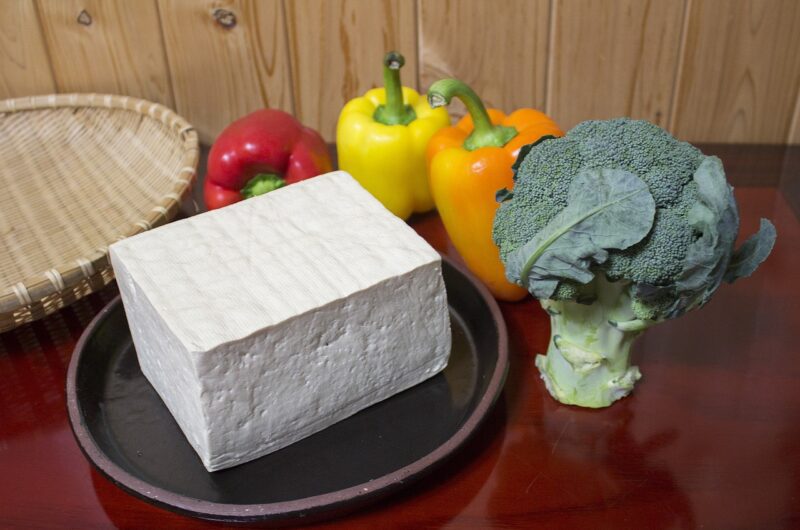
Tofu is one of the most well known vegan meat alternatives.
How to make tofu?
Making tofu at home is a relatively simple process that involves just a few ingredients and some basic equipment. Here is a basic recipe for making tofu:
Ingredients:
- 1 pound of soybeans
- Water
- 1/4 cup of coagulant (such as nigari, gypsum, or lemon juice)
Equipment:
- Blender or food processor
- Cheesecloth or tofu press
- Large pot or saucepan
- Thermometer
Instructions:
- Soak the soybeans in water for at least 8 hours, or overnight.
- Drain the soaked soybeans and blend them with 4 cups of water until smooth.
- Strain the mixture through a cheesecloth or a tofu press to remove any solids. Collect the soy milk in a large pot or saucepan.
- Heat the soy milk over medium-high heat, stirring constantly, until it reaches a temperature of 180°F (82°C).
- Remove the pot from the heat and add the coagulant, stirring gently for a few seconds. Let the mixture sit undisturbed for 10-15 minutes.
- Cut the curd into small pieces with a knife, and then gently stir the mixture to separate the curds from the whey.
- Line a tofu press or a colander with cheesecloth and pour the curds into it. Gently press the curds to remove excess liquid and shape the tofu.
- Let the tofu sit for 30-60 minutes to firm up, then remove it from the press or colander and store it in the refrigerator.
That’s it! You can experiment with different coagulants to achieve different textures and flavors. Freshly made tofu can be used in a variety of dishes, such as stir-fries, soups, and salads.
4. Tempeh:
Tempeh is a fermented soy product that is high in protein and has a nutty flavor. It’s also a good source of iron and calcium, making it an excellent choice for building muscle.
Is tempeh good for you?
Yes,tempeh is good for you.
Through fermentation, our body can also absorb the protein particularly well. Unlike meat, the soy product does not contain cholesterol. The Asian specialty is rich in minerals such as magnesium, phosphorus and potassium. It also contains a lot of healthy fiber
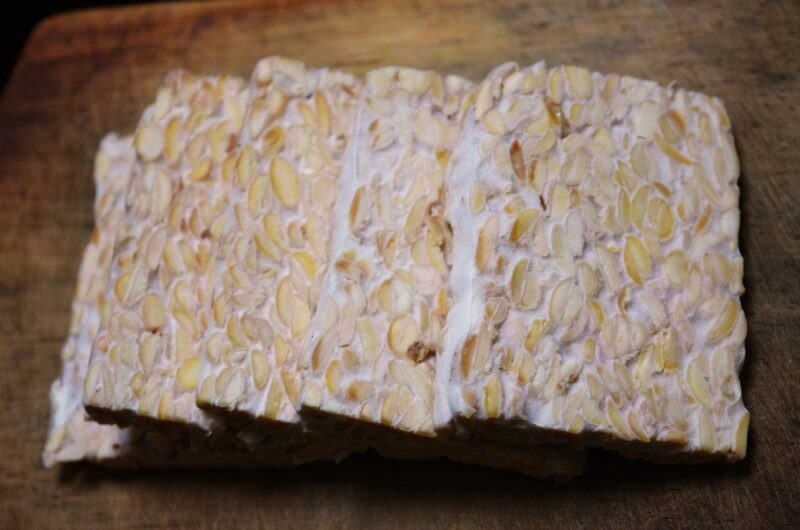
5. Seitan:
Seitan, also known as wheat meat, is made from wheat gluten and is a popular vegan meat substitute. It’s high in protein and low in fat, making it a great choice for building muscle.+
Is seitan good for you?
Seitan is generally considered to be a healthy food option when consumed in moderation as part of a balanced and varied diet. Here are some of the key nutritional benefits and considerations of seitan:
- High in Protein: Seitan is a high-protein food, with about 25 grams of protein per 3.5 ounces (100 grams). This makes it a good protein source for vegetarians and vegans.
- Low in Fat: Seitan is low in fat and calories, making it a good option for those who are watching their calorie intake.
- May Contain Gluten: Seitan is made from wheat gluten, which means that it is not suitable for those with gluten intolerance or celiac disease.
- May Be High in Sodium: Many commercially available seitan products are high in sodium, which can be a concern for people who are watching their sodium intake.
- Low in Vitamins and Minerals: Seitan is not a good source of vitamins and minerals, such as iron, calcium, and B vitamins, which are important for various bodily functions.
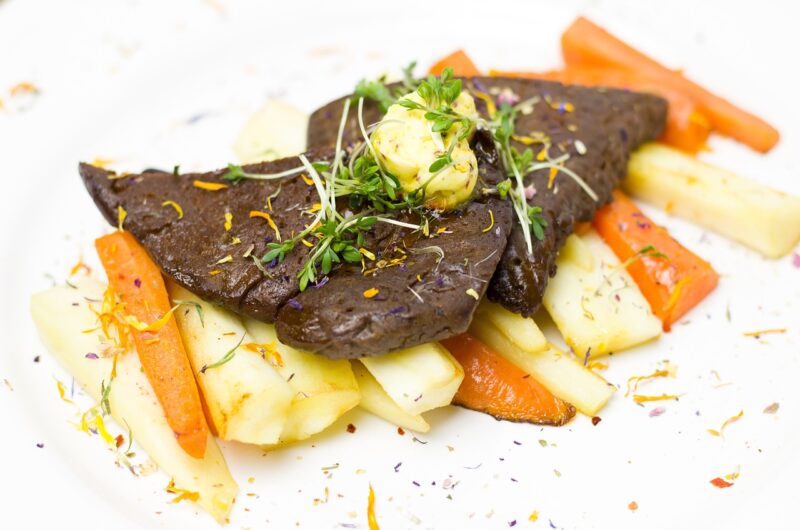
6. Nuts and seeds:
Popular seeds and nut varieties include cashews, peanuts, hazelnuts, walnuts, almonds, pumpkin seeds, pine nuts, pistachios, and macadamia. They all “shine” with high vegan protein content
Cashews (about 20 g protein per 100 g).
Peanuts (about 30 g protein per 100 g).
Hazelnuts (about 14 g protein per 100 g)
Walnuts (about 14 g protein per 100 g)
Almonds (about 19-25 g protein per 100 g)
Pumpkin seeds (about 32-37 g protein per 100 g)
Pine nuts (about 13-24 g protein per 100 g)
Pistachios (about 19-21 protein per 100 g)
Macadamia (about 8-9 g protein per 100 g)
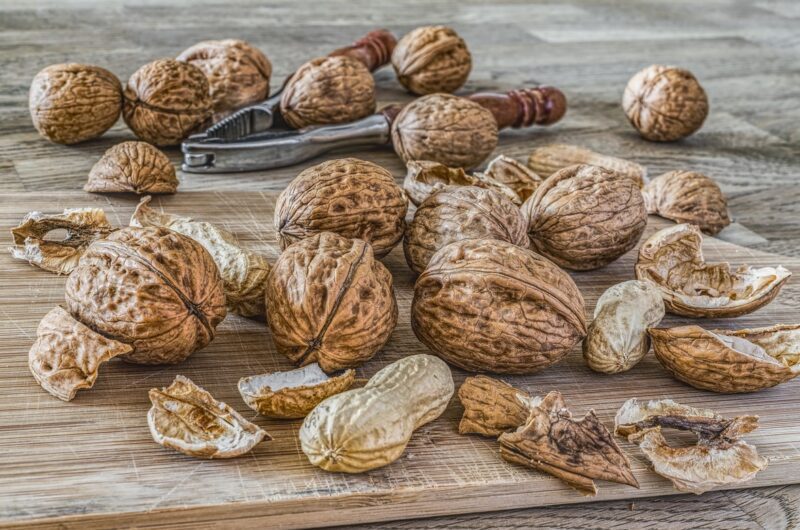
7. Hemp Seeds:
Hemp seeds are a complete protein source and are rich in healthy fats, fiber, and important minerals such as magnesium and zinc. They’re also easy to add to meals and snacks, making them a convenient choice for muscle building.
Are hemp seeds healthy?
Yes, hemp seeds are considered to be a very healthy food source. Here are some of the key nutritional benefits of hemp seeds:
- High in Protein: Hemp seeds are a great source of plant-based protein, with around 9-10 grams of protein per 3 tablespoons.
- Good Source of Essential Fatty Acids: Hemp seeds are rich in essential fatty acids, particularly omega-3 and omega-6 fatty acids, which are important for brain function, heart health, and reducing inflammation.
- Rich in Vitamins and Minerals: Hemp seeds are a good source of several vitamins and minerals, including vitamin E, magnesium, and zinc, which are important for various bodily functions.
- High in Fiber: Hemp seeds are also high in fiber, which is important for digestive health and can help to reduce the risk of chronic diseases such as heart disease and diabetes.
- Versatile: Hemp seeds have a mild, nutty flavor and a slightly crunchy texture, and can be used in a variety of dishes, including salads, smoothies, and baked goods.
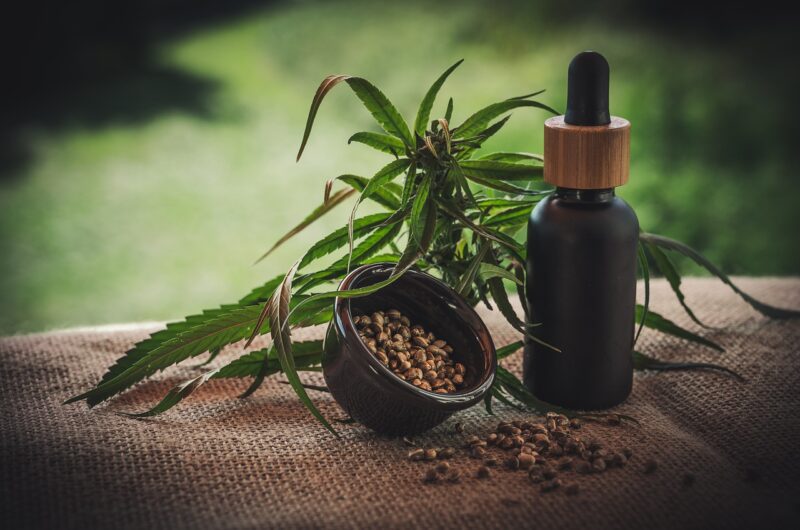
8. Spirulina:
Spirulina is a blue-green algae that is high in protein and contains all nine essential amino acids. It’s also rich in antioxidants and important minerals, making it a great choice for overall health and muscle building.
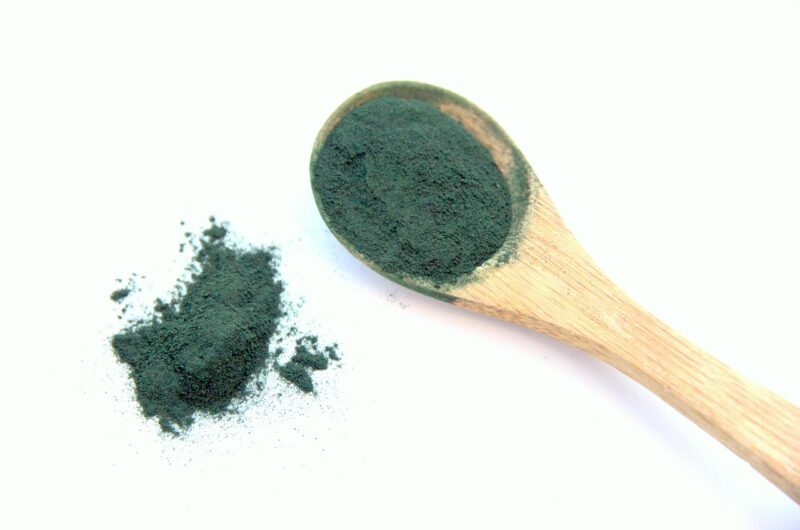
9. Chia Seeds:
Chia seeds are high in protein and fiber, making them an excellent choice for muscle building and weight management. They’re also rich in omega-3 fatty acids, which are important for overall health.
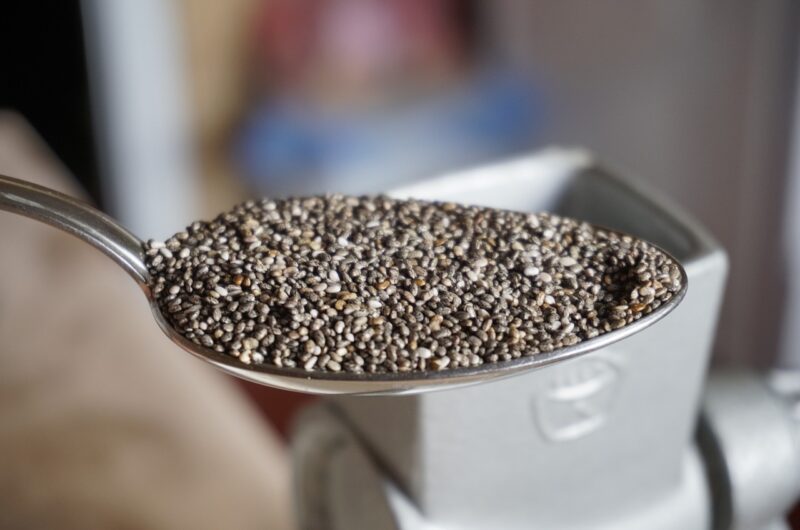
10. Edamame
Edamame, or boiled soybeans, are a great source of protein, fiber, and important minerals such as magnesium and potassium. They’re also a low-calorie snack that can help support muscle building and overall health.
How to Cook Edamame?
Edamame is a popular Japanese snack that consists of immature soybeans still in their pods. They are typically boiled or steamed and served as a healthy and tasty appetizer or snack. Here’s how to cook edamame:
Ingredients:
- Edamame pods
- Water
- Salt
Instructions:
- Rinse the edamame pods under cold water and drain them.
- Fill a large pot with enough water to cover the edamame pods and bring it to a boil.
- Add a pinch of salt to the boiling water and then add the edamame pods.
- Boil the edamame pods for 3-5 minutes, or until they are tender.
- Drain the edamame pods and rinse them under cold water to stop the cooking process.
- Sprinkle some additional salt on the edamame pods to taste, if desired.
- Serve the edamame pods either in their pods or removed from the pods.
Edamame is typically served as a snack or appetizer, and can be enjoyed hot or cold. They can be seasoned with various spices and flavors, such as soy sauce, garlic, or sesame oil, to add extra flavor.
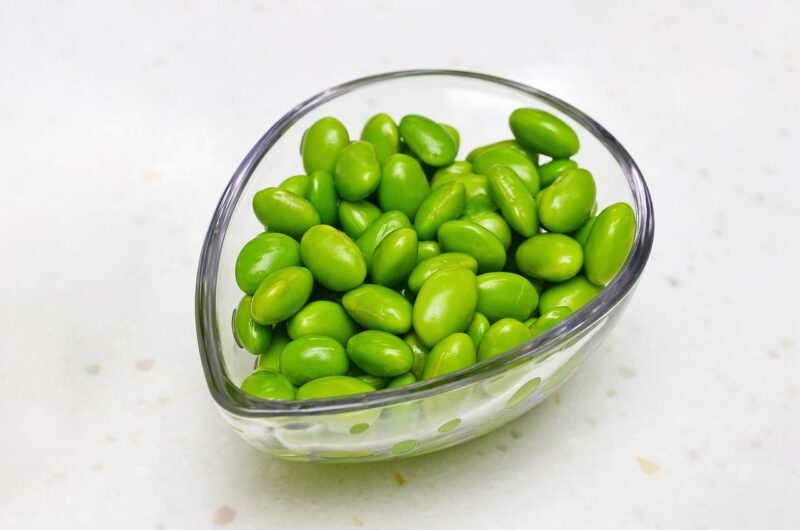
These are the top 10 vegan protein sources for building muscle.
Conclusions:
Proteins are an important nutrient that can provide many health benefits when consumed as part of a healthy and balanced diet. It’s recommended that adults consume 0.8 grams of protein per kilogram of body weight per day, but this may vary depending on individual needs and activity level.
Check out my vegan and vegetarian recipes.
